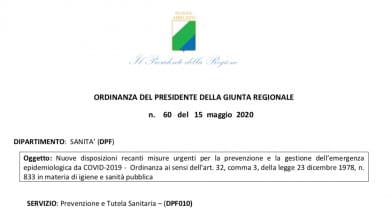
China wants a reformed pharmaceutical industry that relies on a marketing-centric approach that uses medical reps instead of overreliance on sales reps
With Nicole Gray | 2 December 2014 | BioPharma DIVE
Dive in brief:
Two things are driving pharmaceutical companies in China: the changing market and the government's goal to limit corruption. In that context, BMS is cutting up to 1,000 jobs in the country.
BMS calls job cuts “part of our organizational evolution.”
Many of the positions that are eliminated are sales rep positions.
Dive deepening:
China's focus on corruption has cast a harsh light on pharmaceutical companies and employees who do not take a "best practice" approach to doing business. For example, earlier this year, GSK paid a record $468 million fine on charges of bribing doctors.
China wants a reformed pharmaceutical industry that relies on a marketing-centric approach1 that uses medical reps instead of overreliance on sales reps. For their part, sales representatives in China are facing many of the challenges found in other markets, including the United States, most notably, the lack of institutional access.
Some companies are working to change this dynamic by shifting the sales rep culture. In fact, Glaxo has recently implemented a plan where sales representatives are rewarded for technical knowledge, quality of service, and their ability to help improve patient care and overall performance based on their input.
 1The “Marketing-Centric” vs. “Sales-Centric” approach focuses on the people's customer experience and gives the company the tools it needs to make decisions in a highly competitive landscape with limited or defined resources. The sales component of the business development process is dynamic and ever-changing because it is driven, managed and delivered by dedicated people. Staff need the right mindset, skills to set up and tools to excel. With a training in approachability and sales support, Marketing-Centric tools are developed through a systematic approach in alignment with the company's vision and brand. This frees up sales teams and management to focus on revenue generation and maintain the right mindset.
1The “Marketing-Centric” vs. “Sales-Centric” approach focuses on the people's customer experience and gives the company the tools it needs to make decisions in a highly competitive landscape with limited or defined resources. The sales component of the business development process is dynamic and ever-changing because it is driven, managed and delivered by dedicated people. Staff need the right mindset, skills to set up and tools to excel. With a training in approachability and sales support, Marketing-Centric tools are developed through a systematic approach in alignment with the company's vision and brand. This frees up sales teams and management to focus on revenue generation and maintain the right mindset.
In other words, the company must not limit itself to passively managing the dissemination of technical news, price lists, various information, but must be able to manage the relationship between the User, the sales channel, the corporate structures and the suppliers. It should be noted that, since both the sales channel and the user are at the center of the company's attention, the Value Chain is transformed from Supply Chain (supply chain) to Demand Chain (demand chain) where the driving role is played by the Customer.
This relational approach requires a change in the corporate culture and in the way of working, it is necessary to be able to identify the needs and requirements of individual customers and then satisfy them through the definition of an almost personalized offer (products, services, etc.) (mass-personalization). All this means reorganizing oneself from the point of view of methodologies, technologies and above all human resources, so that the business system is able to perceive future trends and changes in advance in order to plan the appropriate actions in time. The primary objective is, first of all, to classify customers according to their importance for the company and then to know as quickly as possible where each "important" customer is going (i.e.: what they want, when they want it and where they want it) in order to be able to plan in advance both the development of new products and the various activities (production, logistics, commercial, service, etc.).
Definition of Marketing
Taken from
MARKET-INNOVATION-MARKET: THE VIRTUOUS CIRCLE TO REMAIN COMPETITIVE
by Oscar Pallme,
Assolombarda, November 2007
Some definitions of Marketing are:
Marketing is defined as the process of planning and implementing the conception of products (ideas, goods and services), the definition of their price, their promotion and their distribution in order to create exchanges that allow to achieve the objectives of individuals and organizations. (Source: American Marketing Association, cited by Kotler in Marketing Management, 2005)
The purpose of Marketing is to get to know and understand the customer to such an extent that the product or service is so suited to his needs that it sells itself. (Source: Peter Drucker, cited by Kotler in Marketing Management, 2005)
Another definition proposed by Franco Giacomazzi (2002), professor at the Management Engineering Department of the Milan Polytechnic, is:
"Marketing encompasses a philosophy and a body of knowledge that guides and supports an organized entity (company, institution, ...) in thought and action, in order to predict, identify and face markets with products, services, ideas and methods that meet current or potential needs, in a continuous comparison both with the competition, creating a sustainable competitive advantage, and with the external environment".
Unfortunately, there are still companies that tend to rely on the following practices:
believe that marketing and sales are the same thing;
emphasize the acquisition of new customers rather than maintaining them;
seek to make a profit on each individual transaction rather than aiming to increase profit over the entire life of the customer relationship;
plan every single communication activity separately instead of according to a global and integrated vision;
sell the product instead of trying to understand and satisfy the real needs of the customer.
This old way of doing business is no longer successful and companies that adopt it are in serious danger of disappearing.
In some Italian companies, Marketing has even been suppressed on the basis of the consideration that "the sellers know what the customers want", only to then lose market share because the sellers almost never understand future trends! Sellers, except in isolated cases, are focused on the present or, at most, on short-term results (sales).





